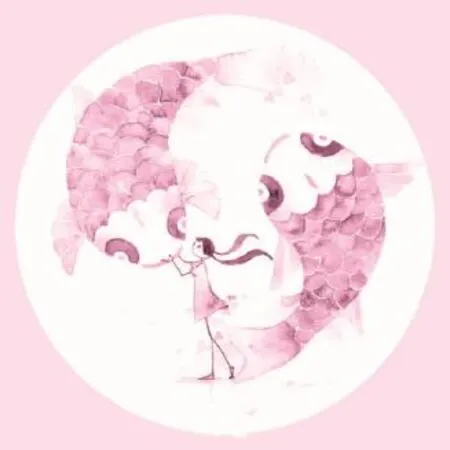Blue PlanetⅡ:Meet the fish which is so scared of water lives in a cave
By Delphic
导读:俗语有云:“如鱼得水”,然而大千世界无奇不有,在遥远的太平洋群岛就生活着这样一种怕水的鱼——太平洋跳鱼。
It is not easy being a fish when you are afraid of the water.
So spare a thought for the leaping blenny,which detests the sea so much,it chooses to live in miniature cave three feet above the tide-line in Guam,Micronesia,and scampers to higher ground when it notices even the smallest wave approaching.
The Pacific leaping blenny,which needs to frequently roll around in coastal puddles to stay wet,has been filmed for the first time by BBC’s Blue PlanetⅡ.
Introducing the nautically-challenged fish on this week’s episode,Coasts,Sir David Attenborough said: “One marine creature has virtually abandoned the sea altogether.On a few remote Pacific islands lives the most terrestrial fish on the planet.”
“These Pacific leaping blenny seem afraid of the waves.They are poor swimmers and would be easy prey in the sea.”
Instead of finding food in the water,the blenny feeds on algae which grows on the cliff face.
To avoid being swept off the rocks,the little fish can leap far further than its three inches of body length.It attracts females by flashing an orange patch on its dorsal fin,eventually attracting a mate into its nest in the rock crevice,where she lays her eggs.
The episode has also caught sea lions working together to hunt tuna into a labyrinth of small bays in the Galapagos Islands,footage which proves for the first time that the creatures are able to cooperate and plan.
Land crabs are also filmed leaping from rock to rock,desperately trying to avoid Moray eels and octopuses in the water,while penguins are seen tentatively walking through colonies of elephant seals to reach their young.
Mark Brownlow,Series Producer,said:“In the last of our habitat-based episodes we visit our coasts.
“They may be our window to the oceans,where we go for rest and relaxation,but the creatures that live here have to go through incredible hardships to survive in this divide between land and sea.”
“From sea lions that drive massive tuna onto dry land to heroic puffins struggling to feed their young.This episode is going to be extraordinary because we’ve got so many new,incredible stories.”
如果你是一条怕水的鱼,那么一定生活得相当不易。
所以请多多体谅太平洋跳鱼,这种出没于密克罗尼西亚的关岛附近的鱼类极度厌恶海洋,平时选择生活在距涨潮线不足一米以上的微型洞穴内,即便极小的波浪接近时也会跳向更高的地方。
太平洋跳鱼需要经常在沿海的水坑中翻滚来保持湿度,这是英国广播公司《蓝色星球2》节目首次拍摄这种动物。
主持人大卫·爱登堡爵士会在《蓝色星球2》本周播出的最新一集节目《海岸》中向观众介绍这种恐水的鱼,他表示:“这是一种海洋生物,却远离海洋生活,这种排斥海洋的鱼类就生活在遥远的太平洋群岛。”
“太平洋跳鱼似乎非常惧怕波浪,他们不擅长游泳,在水中很容易遭到捕食。”
太平洋跳鱼不会在水中觅食,而是以悬崖峭壁间生长的海藻为生。
跳鱼为了避免碰到岩石,其跳跃距离会远远超过自身三英寸的身长。雄性跳鱼背鳍上的橙色斑点会发出亮光,以此吸引雌性条鱼进入洞穴在岩石缝隙产卵。
本集中,观众还会看到海狮在加拉帕戈斯群岛附近迷宫般的海湾中齐心协力捕猎金枪鱼,该片段证明海狮具备组织计划的能力。
片中还拍到地蟹在岩石间跳跃,拼死摆脱水中的海鳗和章鱼,而企鹅则试图穿过海象的领地到达小企鹅身边。
系列纪录片制片人马克·布朗洛表示:“系列片以反映海洋栖息地为主,尾声部分会带领观众领略海岸的风貌。”
“海岸或许是我们了解海洋的窗口,人们在这里放松消遣,但是这里的生物却经历了让人难以置信的苦难,方能在这海洋与陆地的分界线生存下来。”
“海狮把巨大的金枪鱼拖上陆地,英勇的海螺努力给后代喂食。这集节目非比寻常,讲述了许多新奇独特又令人难以置信的故事。”


